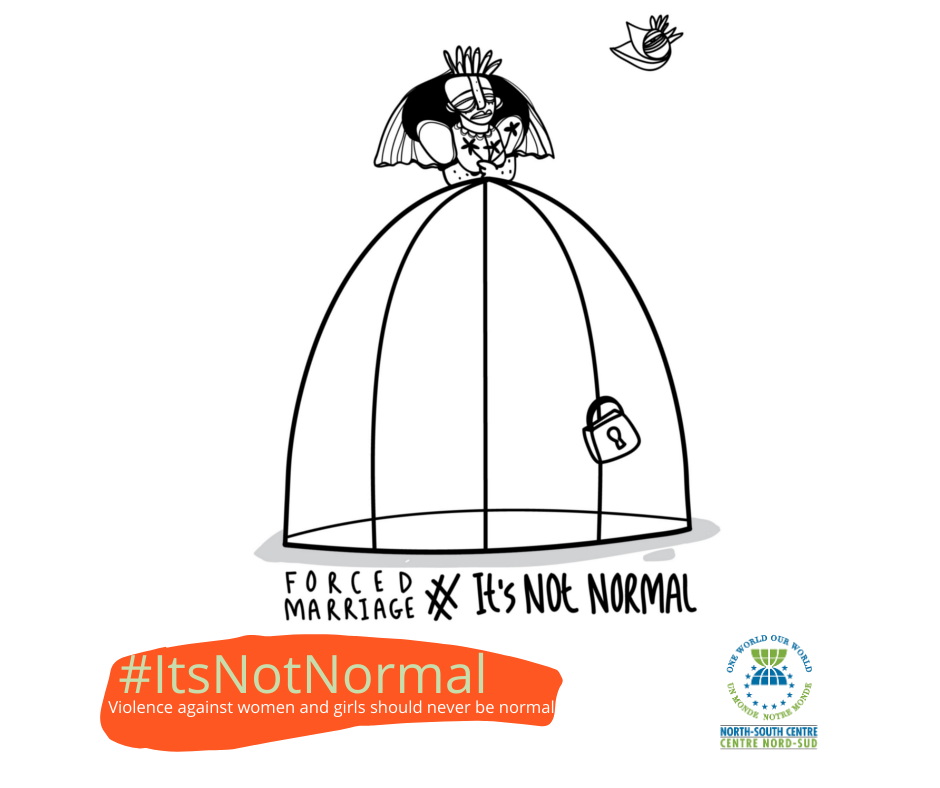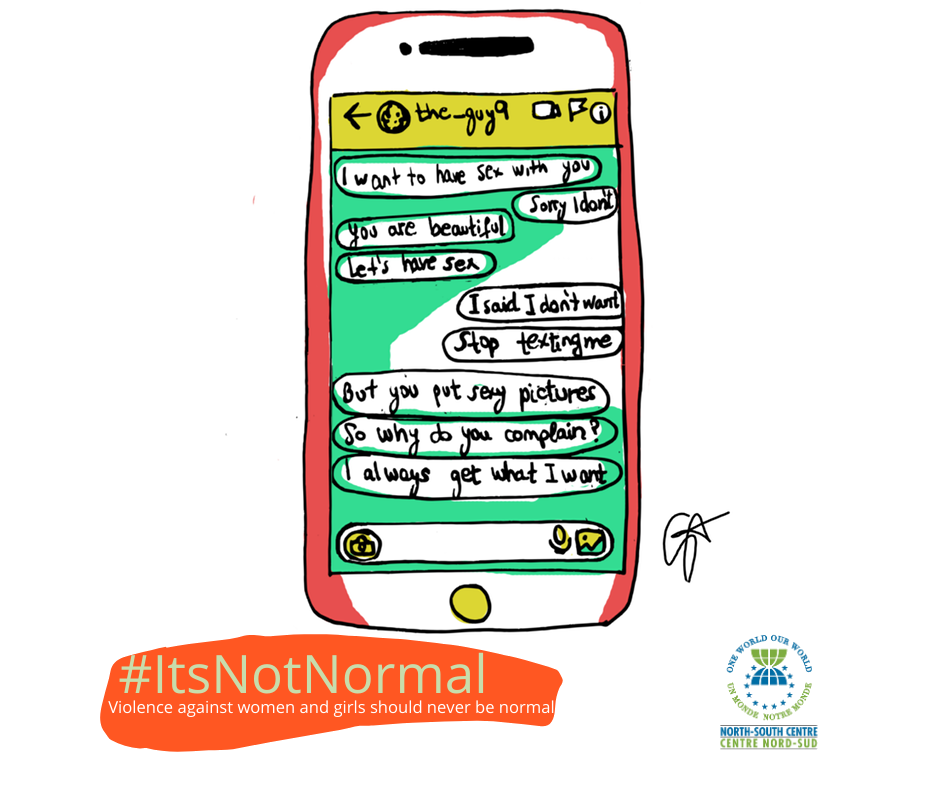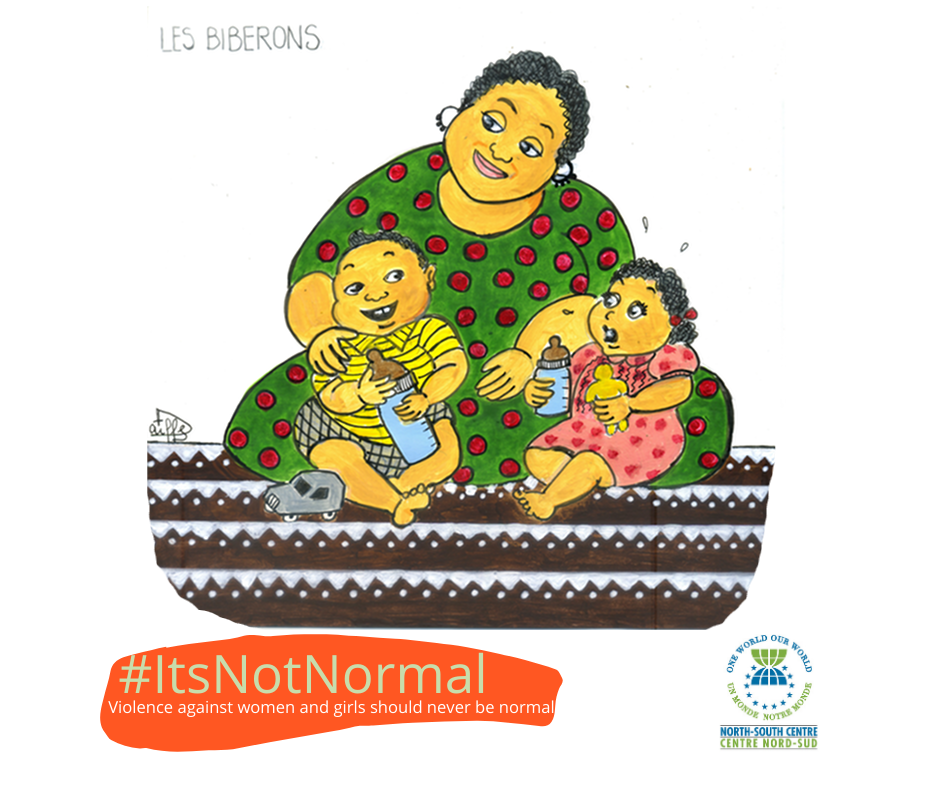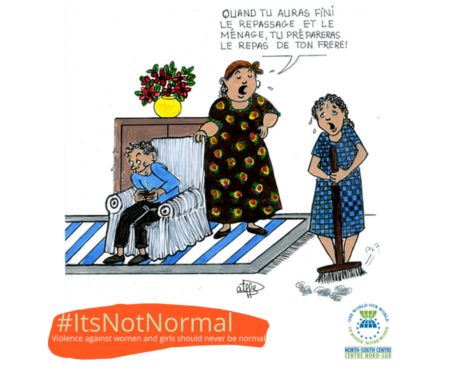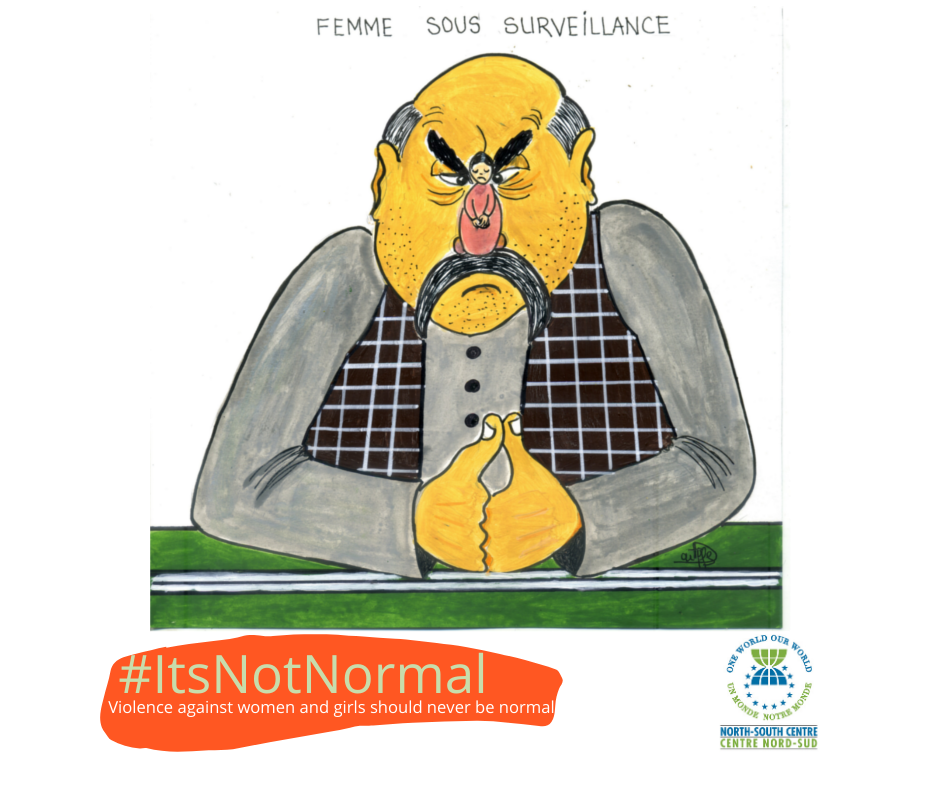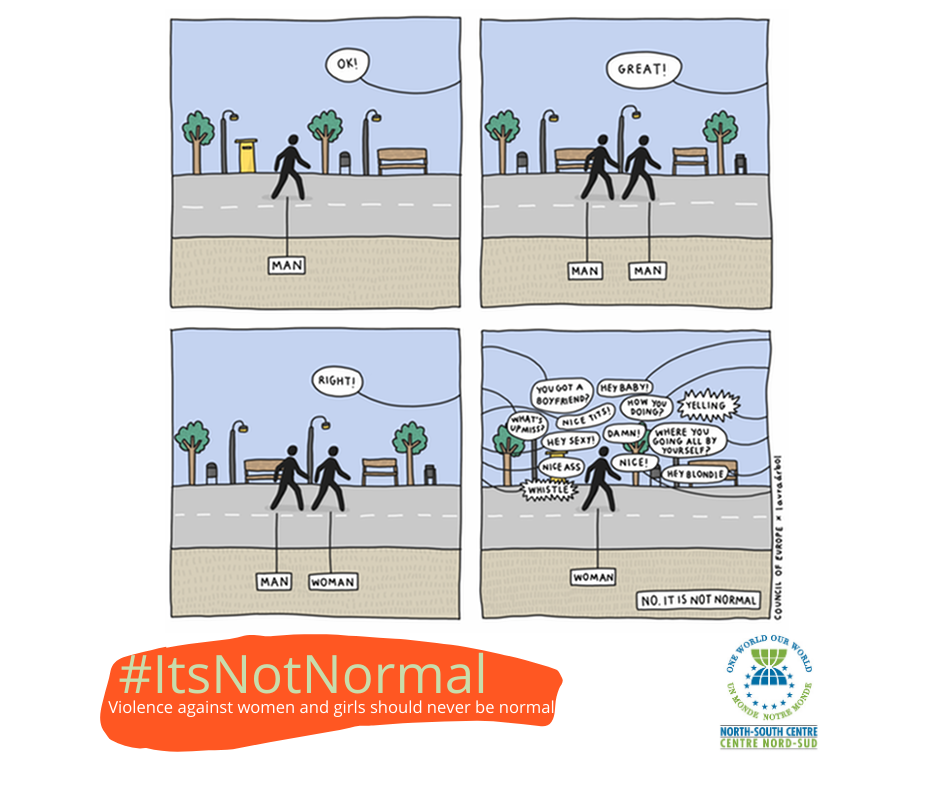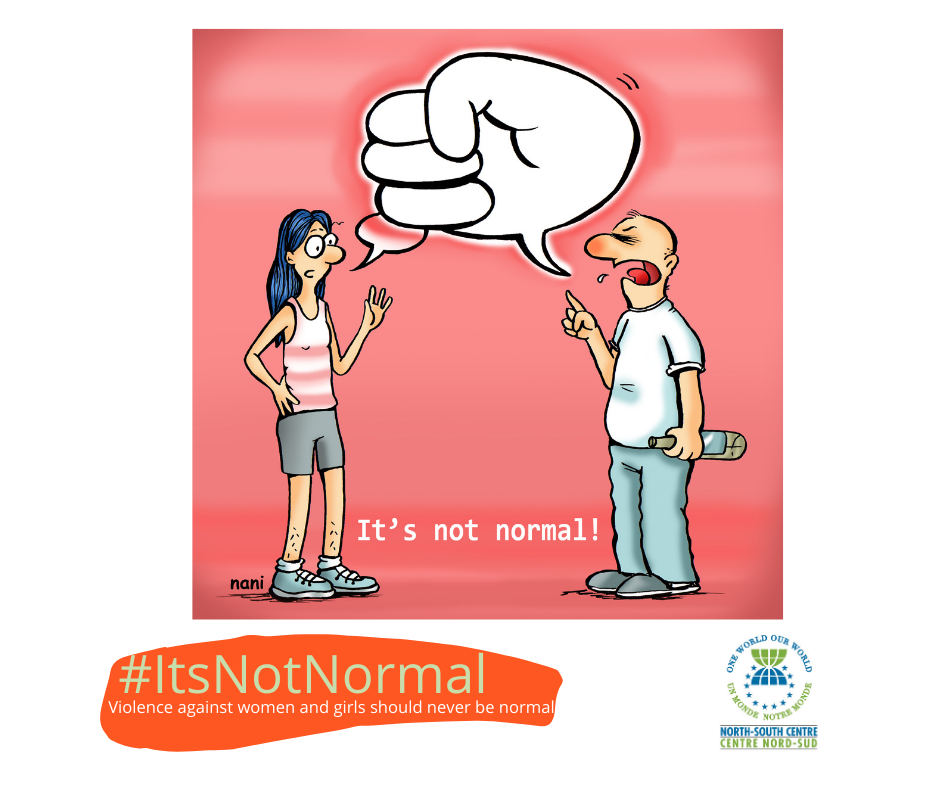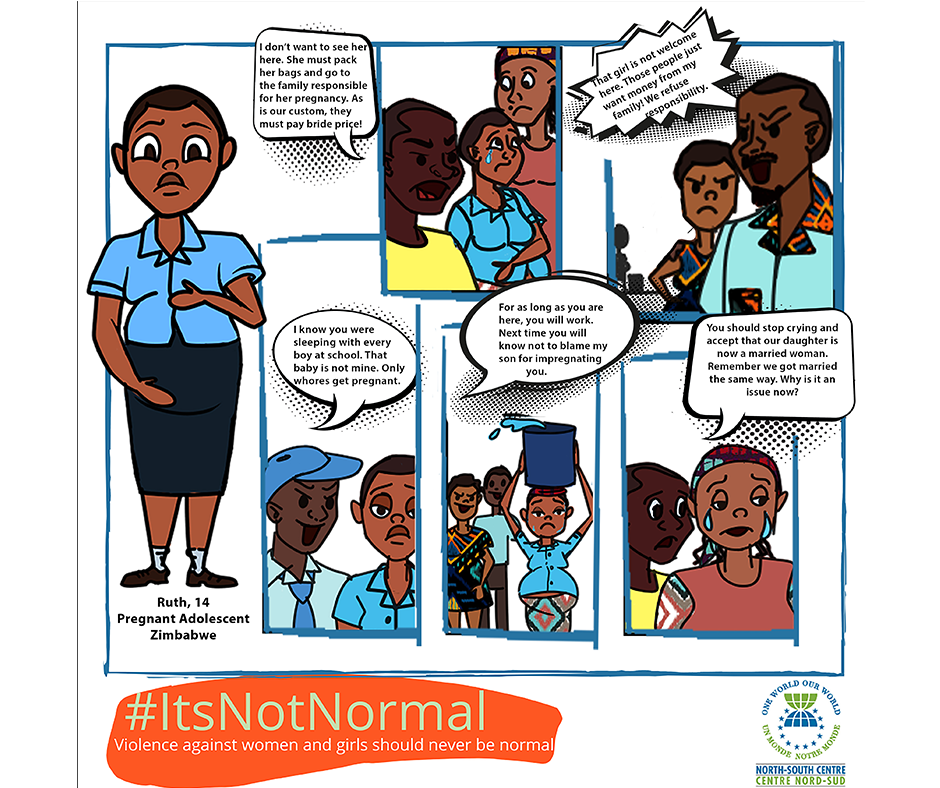#itsnotnormal
Cartoons to denounce the normalisation of violence against women.

|
As part of its project "We for Diversity and Equality", female cartoonists teamed up with the North-South Centre to denounce the many forms of violence against women that are still considered “normal”, due to harmful social norms and stereotypes. Despite long-standing efforts to condemn and denounce violence against women, society continues to normalise it. The normalisation of violence against women refers to ideas and actions supporting, leading and maintaining such violence, which is perceived as 'normal' and becomes taken-for-granted or 'natural' in everyday life. This not only hinders identification, but, even when violence is identified, it frequently results in victim-blaming and silence. Maintained by personal, family, and social sexist values in mostly patriarchal societies, the normalisation of violence is a vicious cycle, which can only be stopped through awareness and education defying sexism and gender stereotypes. At the occasion of the 2020 International day for the Elimination of Violence Against Women, cartoonists from different parts of the globe shared their own vision of the normalisation of violence through drawings.
|
MEET SIZA MUKWEDINI
|
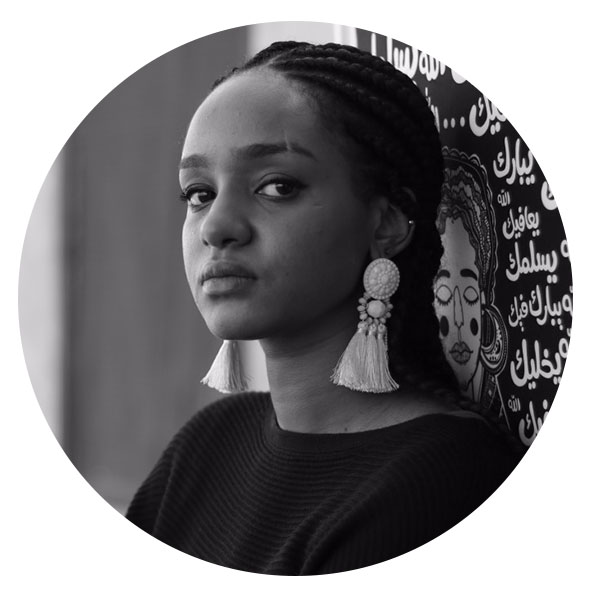
Alaa Satir
Celia Zayas
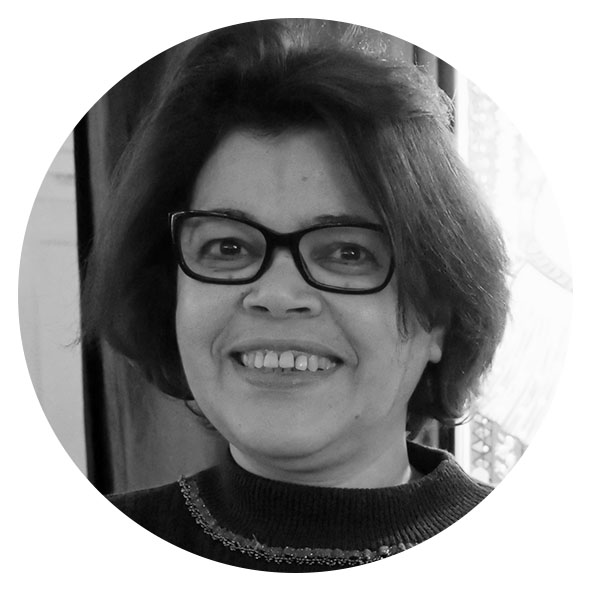
Daiffa
Daiffa is a Franco-Algerian artist. She is one of the first women cartoonists to be known in the Arab world. Born in a conservative environment, soon she started to observe the society that surrounded her and, without hesitation, she started to raise her voice, frequently with a dark humour, about certain patriarcal behaviours hindering, on the first place, women. Apart from her female condition, Daiffa’s drawings approach many topics, such as world poverty, demography or environment.
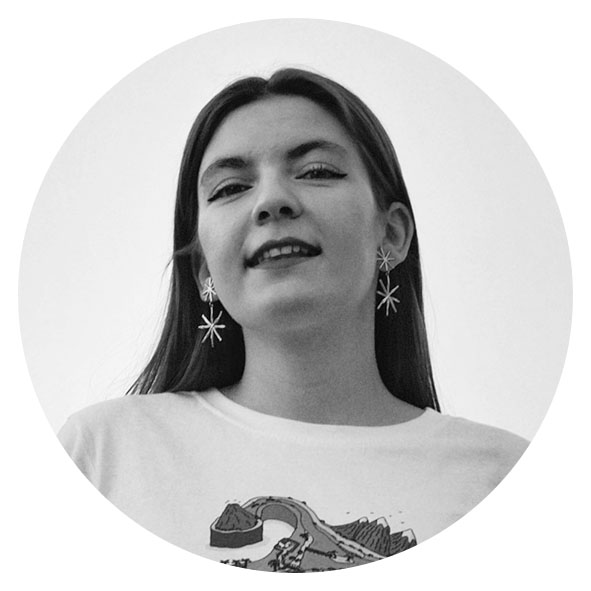
Laura Árbol
Laura Árbol is an illustrator based in Spain. She works in visual thinking, editorial illustration and illustrated projects for different campaigns and products. Her projects are focused in feminism, millennial precariousness and topicality, always using a sense of humor. She really likes play on words.
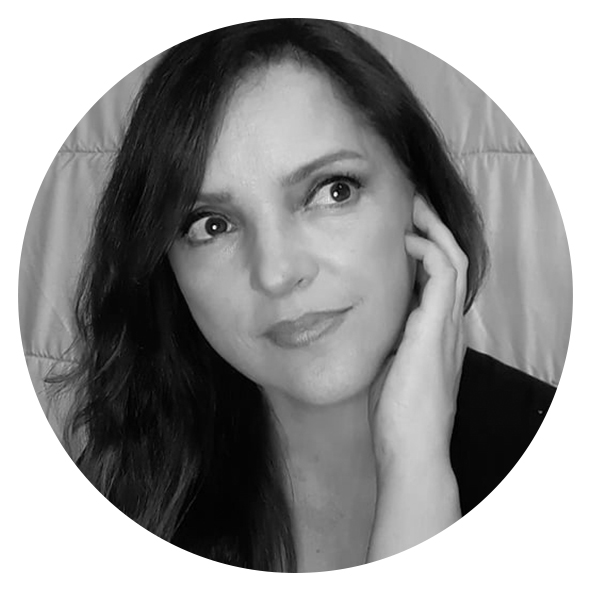
Nani - Adriana Soto Mosquera
Adriana Soto Mosquera (Nani) is a Colombian artist, and holds a BA in Biology and graphic designer and fashion. She is a Honorary Professor of humor at the University of Alcala de Henares, Spain 1998. She has won several international awards in Cuba, Mexico, Argentina, Colombia and Spain. She is a contributor to the International Committee of the Red Cross in the fight against womens’ abuse and she has worked to make visible women cartoonists in the world. She is the author of 16 books which are sold throughout Latin America and her cartoons have illustrated books to teach Spanish throughout the world. Her work is focused on UN partnerships with women and her character Magola Colombia, who has been published in different newspapers for 25 years.
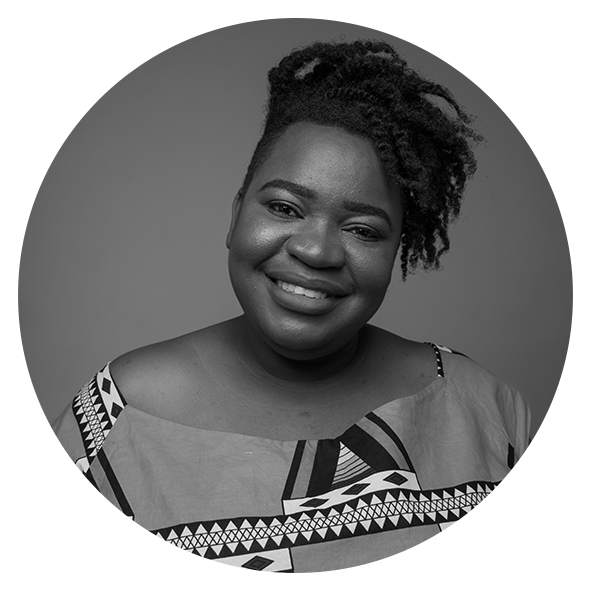
Siza Mukwedini
Siza Mukwedini, from Zimbawe, defines herself as a dreamer, ideator, innovator, learner and visual storyteller working in most forms of new digital media to engage Zimbabwean and African communities on coming up with solutions to social pertinent issues they face. Siza also trains, mentors and works with marginalized communities (women, youth and deaf communities) to find their voices through formats like film and print media production.



